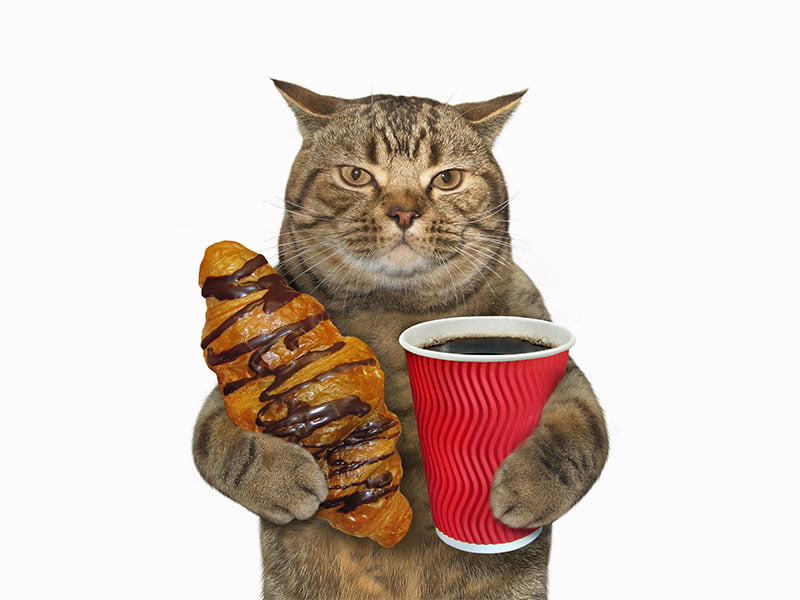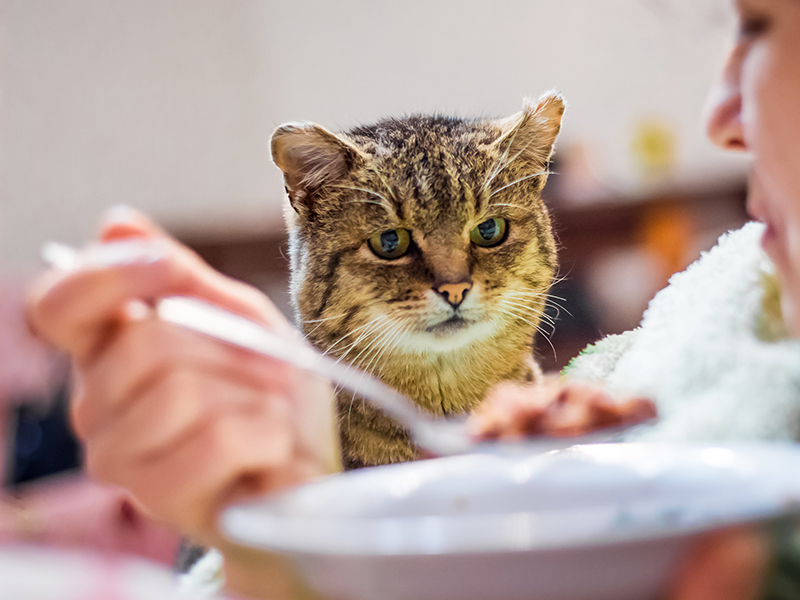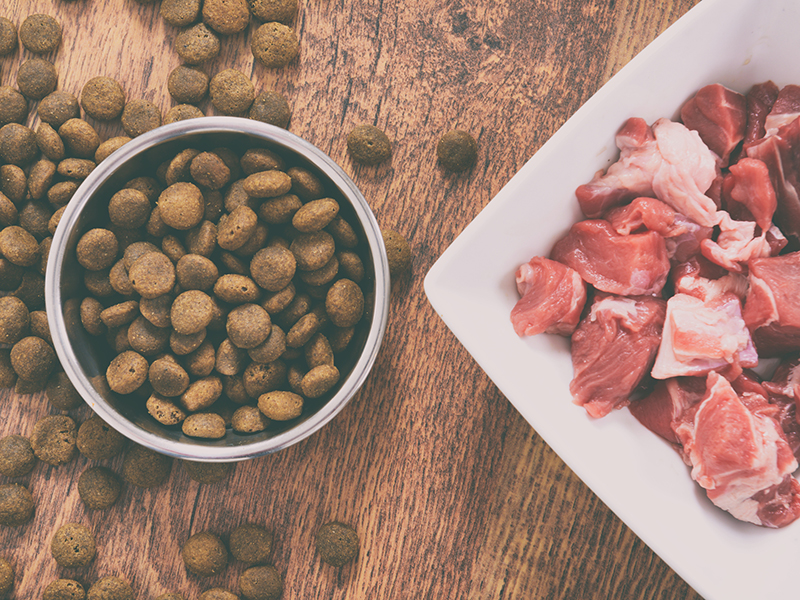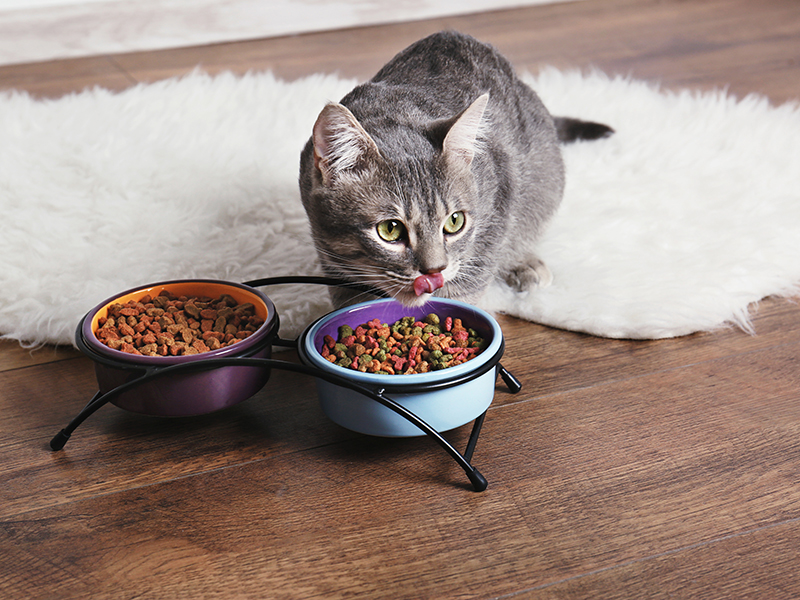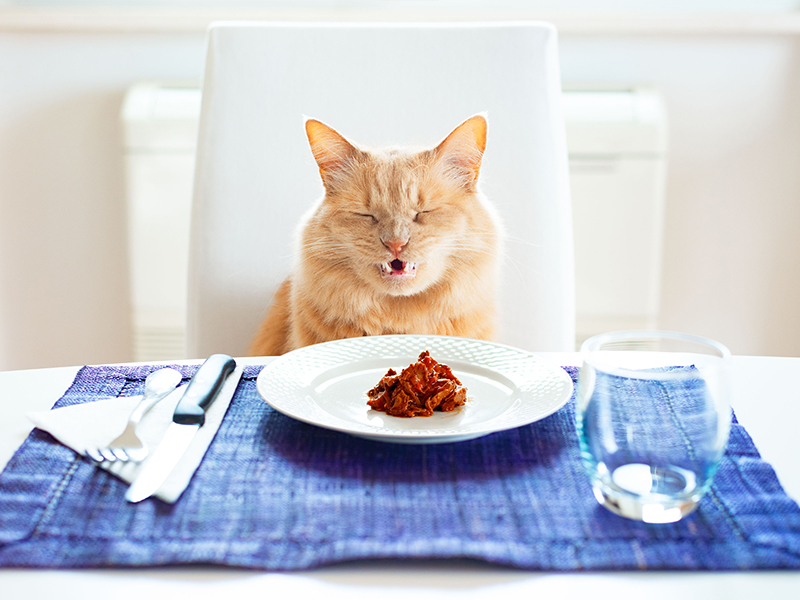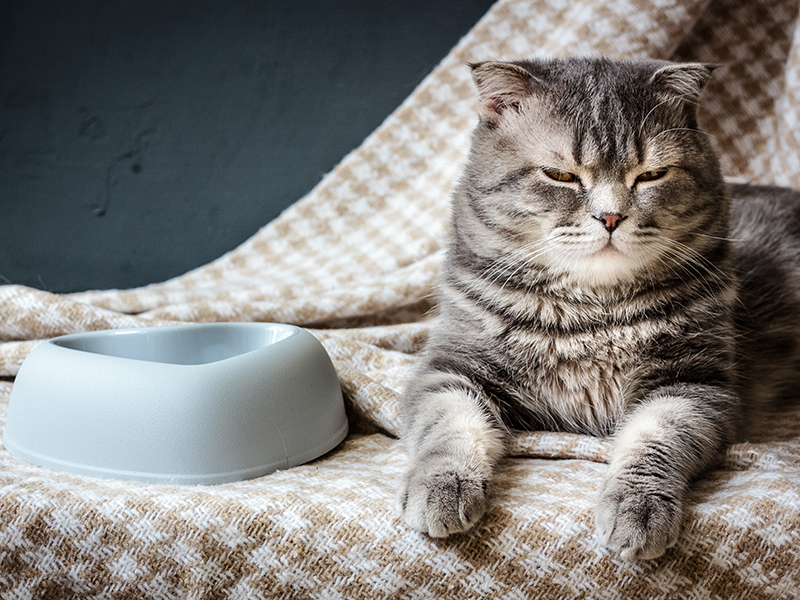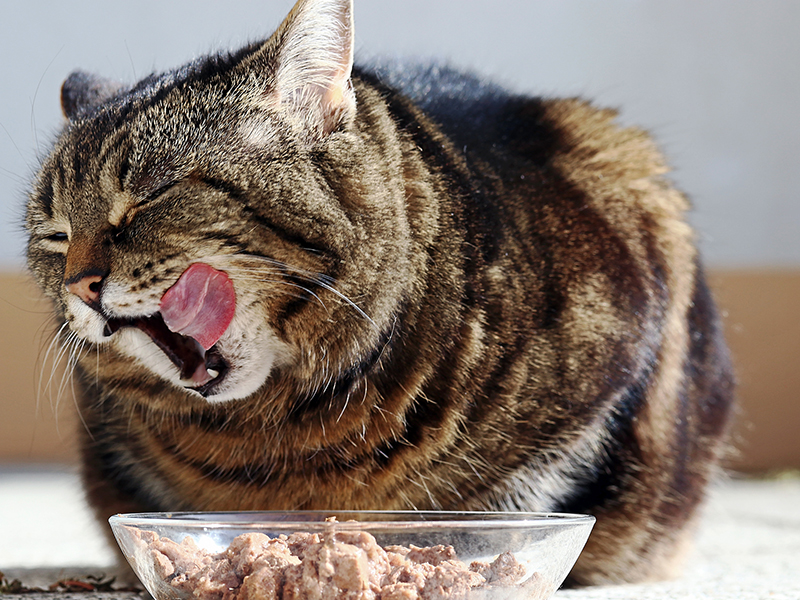Do you have an elegant four-legged sous chef? Or perhaps a furry, attentive dinner companion? It sure is lovely to have some lingering company while you cook and eat but be careful that your cat doesn’t get too close to certain human foods. Even a sliver or lick of some everyday pantry items can be toxic to your kitty. Here’s a list of which human foods you should never allow your cat to eat.
Pungent Root Vegetables
While various forms of pungent root veggies add delicious flavors to human meals, the feline digestive system simply can’t handle them.
The veggie family of onions, garlic, chives, etc. are toxic to cats. They contain N-propyl disulfide which affects your kitty’s red blood cells and can lead to anemia if eaten in a large quantity, or even in small amounts regularly.
A little piece of garlic cooked into sauce may cause a slight upset tummy, but if a whole onion or large garlic clove is consumed, you should alert your vet of potential poisoning. When it comes to ‘toxic foods’ the quantity consumed will directly affect how serious and urgent the case is.
Grapes
While there are many cat-friendly fruits out there, grapes (and their dry cousin, the raisin) don’t fall into that category.
There are multiple variables related to the toxic impact of grapes and raisins in cats. In mild cases they cause vomiting; though severe cases of grape poisoning have been linked to urinary issues and kidney failure – so don’t take any chances with leaving these sugar drops around.

Chocolate
Just like their canine counterparts, cats can’t eat chocolate – it’s toxic to them and they know it. By smell and taste, most cats wouldn’t organically give chocolate a try, but a well-meaning cat parent may unknowingly offer it as a treat.
It’s certainly a human treat, but the presence of theobromine in chocolate makes it poisonous to cats. The concentration of theobromine is higher in dark and baking chocolate – if consumed in large quantities, chocolate would cause heart arrhythmia, seizures, and possible death.
Raw Protein
Fat and Bones
Leftovers and table scraps are usually made up of bones and pieces of excess fat.
Bones are bad news for cats because they’re a natural choking hazard, and really tough on your kitty’s tiny teeth.
While growing cats need substantial amounts of fat in their diets, an excess of raw or cooked animal fat will cause an upset tummy and other digestive complications.
Alcohol
Sure it’s 5 o’clock somewhere, but unfortunately, there should be no happy hour for your kitty! Alcohol affects a cat’s liver, bloodstream, and brain in a similar way that it affects ours – but let’s just call your kitty a super lightweight drinker.
If your cat is around 5 pounds and they consume just 2 teaspoons of hard liquor; they will go into a coma! A few more drops and their life would be at risk (scary stuff).
Try to keep your liquor cabinet closed and ensure that glasses of leftover dinner drinks are discarded overnight. Be mindful that this also applies to food that may contain alcohol, so you’ll probably want to keep that tiramisu out of kitty’s reach.
Caffeine
Please keep the cover on your double latte. Coffee and all caffeinated products can be extremely toxic for a little kitty.
If an entire cup of coffee or black tea is sipped, your cat will experience the human equivalent of drinking 3 cans of Red Bull! Typically, cats who have consumed caffeine will be restless, their breath will get short and choppy, and their little hearts will race. In extreme cases of caffeine poisoning, cats may have seizures.
This little warning is probably a blessing in disguise for busy cat parents who keep letting their coffee get cold – finish a warm cuppa to keep your little furball safe!
Dairy Products
Cartoon cats heavily misrepresent your kitty’s love for milk and the ability to consume dairy products!
Many cat owners don’t know that after kittens are weaned, they have little nutritional need for any form of dairy. In fact, cow’s milk contains more lactose and casein than most adult cats can handle. Adult cats have low levels of lactase, which is the enzyme that helps them digest dairy.
If your cat has nibbled on a chunk of cheese or gulped up the remains of your cereal milk, expect them to have an upset tummy within the next 12 hours. Sorry, kitty.
Even if you keep a close eye on your cat, it’s possible that they may ingest something that they shouldn’t. If it’s only a tiny bit, the toxicity effects will be minimal. But if your cat has eaten a significant amount of a potentially poisonous human food, call your local vet or the 24/7 ASPCA National Animal Poison Control Center hotline at 1 888 426 4435 right away.

